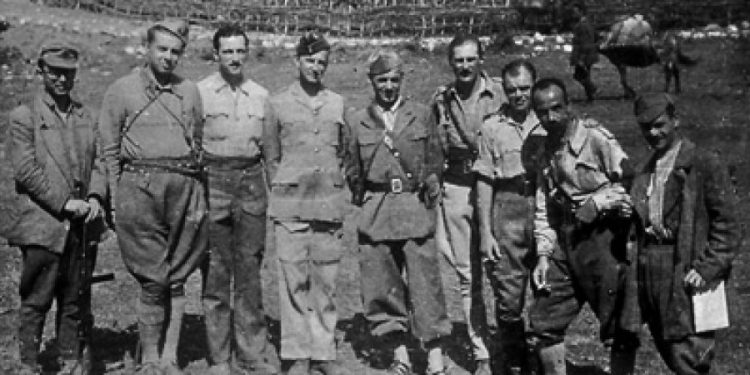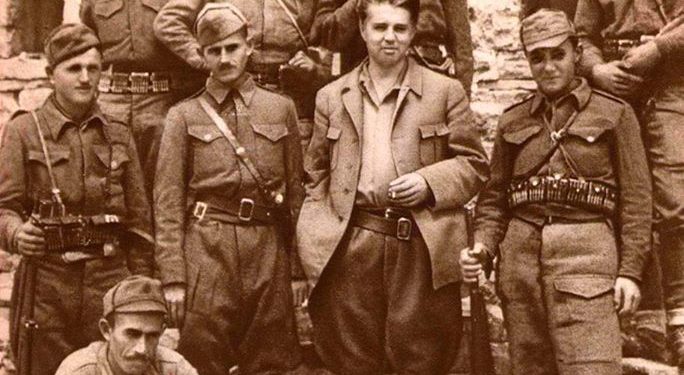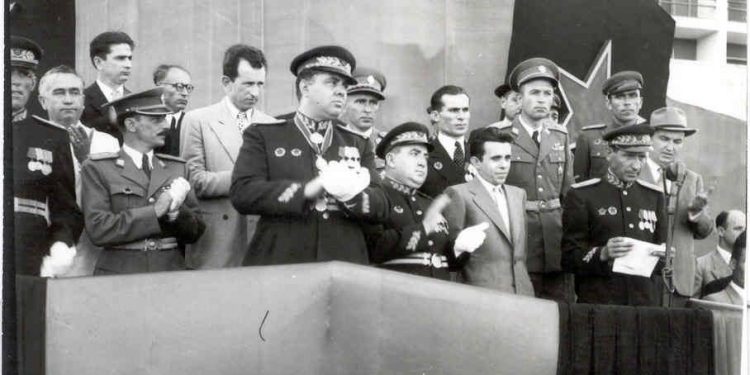Dashnor Kaloçi
Memorie.al publishes a list of 100 names of prominent personalities, as founders of the Communist Party of Albania since 1941, leaders of the Anti-Fascist National Liberation War as commanders and commissars, and later senior staff and functionaries of the Communist regime. Enver Hoxha, who over the years was accused of being “enemies of the people and criminals” and sentenced to death, died in investigative cells and prisons, or suffered years of political persecution in the prisons and internment camps of that regime. …
During its 50 years of existence, the Albanian Communist Party, then called the Party of Labor of Albania, tragically eliminated from its ranks almost all of the highest and most vocal exponents they had founded, or which had significantly contributed to the consolidation of its power. All these characters who were physically assaulted or eliminated by the Communist regime of Enver Hoxha had devotedly served until the very last moment, this very party, and its leader, Enver Hoxha, who with a pencil drop deciding which ones to keep living, and which ones not! The contribution of these great personalities of Albanian Communism begins with the founding of the Communist Party on November 8, 1941, and then with the Anti-Fascist National Liberation War, to end with the period, usually in historiography of that time. time would also be labeled as the “socialist construction of the country” in 1944-1991. Ironically, the 100 characters on this list can even be described as the leaders of the Albanian Communist regime (at least a good part of them), who were well-educated in the most popular schools and academies. of the East or of the West in the 1930s and 40s of the last century and until 1961 in the countries of the Communist East, or as it was then called by official propaganda, as “People’s Democracies”. Some of these characters had helped Enver Hoxha in the struggles for the coming to power of the Party he led in war-torn Albania in 1943-1944, while others had helped him cement the roots of his absolute power in the hierarchy. of the Labor Party of Albania. While the third and final part would be the most tragic one, which zealously accompanied dictator Hoxha in the wake of his fierce 45-year rule in the country. And right at the end, this piece, without waiting, fell prey to its own monstrous crimes! Charges for them would be set in the dark corridors of the shady-heavy building that once had not only Tirana but the entire site of the Central Committee of the Albanian Labor Party, with their implementation being in charge of the Ministry of Internal Affairs. of its branches and numerous departments, the most prominent of which was the State Security, which Enver himself had regarded as the “sharp tip of the sword of the dictatorship of the proletariat”?! The paranoid nature of the Albanian Communist regime would label these unfortunates as “enemies of the people”, “traitors to the homeland”, “agents of the Yugoslav UDB, the Soviet KGB, the American CIA” of all sorts. other epithets of various kinds. But their only “fault” that they would only realize when they saw themselves in the dark cells of Investigators or Security, political camps and prisons or remote villages in internment, was that they had supported and served until At that moment Enver Hoxha’s power ?! Many remained loyal to the point that when they were sentenced to death and executed, they took the courage and courage to apologize to him, even writing letters from prison or internment where would declare him eternal faithfulness! Likewise another part of them, with the firing squad on their heads, would shout his name until the last few seconds, having some sort of “hope” that their ruler could forgive them! Unfortunately, that would not be the case. Because the model of the campaign of purges and eliminations that Enver Hoxha would carry out on his comrades, associates and colleagues was identical in copy to the Communist Party of the Soviet Union and personally to its leader, Joseph Visarionovich Stalin. This method was imported into official Tirana thousands of miles away from Moscow, where within its Kremlin walls its leaders “ate” each other and those who remained on top of it “ate” the next cut. The story of Albania’s Labor Party is tragically similar to its Soviet counterpart, a story of suffering and purges, a story of eliments and mysterious killings of its founders and mainstream members. Frighteningly, this method of rule after 1945 spread to all the communist states of the East, where of course even small Albania would absorb and adapt it to its model. And that would be because the very person who would export this model to the communist world, Joseph Visarionovich Stalin, would at the same time serve as a guide and an idol for the Albanian communist dictator, Enver Hoxha, with a list of purges of his close associates. , it’s hundreds. At this writing, Memorie.al brings the first 25 characters of this list of 100 names.
It follows from the past number
-
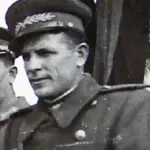 Kristo Themelko, captain of the Zog Monarchy, early communist with the Communist Party of Shkodra, member of the SNP founding meeting, Political Commissar of Peza’s gang with Myslym Peza, Member of the Political Bureau The People’s Assembly since the first elections of 1945, “Hero of the People”, Major General, Commander of the 3rd Corps in Berat and Director of the Political Directorate in the Ministry of Defense. In 1949, after defending Koci Xoxen, he was convicted by Enver Hoxha and assigned to work as the Head of Craft Cooperatives in Tirana and a brigadier for barbers, shoemakers and tailors. Died in 1990.
Kristo Themelko, captain of the Zog Monarchy, early communist with the Communist Party of Shkodra, member of the SNP founding meeting, Political Commissar of Peza’s gang with Myslym Peza, Member of the Political Bureau The People’s Assembly since the first elections of 1945, “Hero of the People”, Major General, Commander of the 3rd Corps in Berat and Director of the Political Directorate in the Ministry of Defense. In 1949, after defending Koci Xoxen, he was convicted by Enver Hoxha and assigned to work as the Head of Craft Cooperatives in Tirana and a brigadier for barbers, shoemakers and tailors. Died in 1990.
-
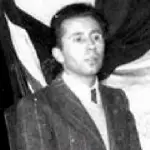 Nesti Kerenxhi, In mid-1939 he was accepted into the Communist Party of Korça, and thus a member of the SNP since its inception. In 1942 he was elected political secretary of the Communist Youth District Committee. In March 1943 he was a delegate of Korça to the First SNP Conference. With the creation of the 4th Communist Brigade, he is in charge of its political sector. In 1944-’46 as Kochi Xoxes’ trustee, Kerenji is deputy director of the Directorate of Public Protection. In April 1946 – February 1948 he was the first Director of State Security and was also Deputy Minister of Internal Affairs, then he left the position of Deputy Vask Koleci. In 1947-50 he was a deputy of Shkodra. In 1948 (2 October – 22 November) Minister of Internal Affairs, member of the Political Bureau of the SNP, Minister without Portfolio and President of the State Planning Commission. After 1950 he was arrested and later released after a brief imprisonment. He interns with his wife Naxhije Dumen in Selenica, Vlora, where he ends up in the bitumen mine until 1990.
Nesti Kerenxhi, In mid-1939 he was accepted into the Communist Party of Korça, and thus a member of the SNP since its inception. In 1942 he was elected political secretary of the Communist Youth District Committee. In March 1943 he was a delegate of Korça to the First SNP Conference. With the creation of the 4th Communist Brigade, he is in charge of its political sector. In 1944-’46 as Kochi Xoxes’ trustee, Kerenji is deputy director of the Directorate of Public Protection. In April 1946 – February 1948 he was the first Director of State Security and was also Deputy Minister of Internal Affairs, then he left the position of Deputy Vask Koleci. In 1947-50 he was a deputy of Shkodra. In 1948 (2 October – 22 November) Minister of Internal Affairs, member of the Political Bureau of the SNP, Minister without Portfolio and President of the State Planning Commission. After 1950 he was arrested and later released after a brief imprisonment. He interns with his wife Naxhije Dumen in Selenica, Vlora, where he ends up in the bitumen mine until 1990.
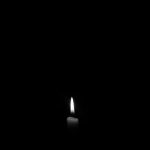 Naxhije Dume, Communist of the Hours, Member of the People’s Assembly, Member of the Political Bureau and Minister of Education in the first government of Enver Hoxha in 1945. After the imprisonment of her husband, Nesti Kerenxhi, Deputy Minister of the Interior in the year 1945 1950, its denigration begins. After his release in the 1950s, Naxhije Dume lived with Nesti in exile in Selenica, Vlora until 1991.
Naxhije Dume, Communist of the Hours, Member of the People’s Assembly, Member of the Political Bureau and Minister of Education in the first government of Enver Hoxha in 1945. After the imprisonment of her husband, Nesti Kerenxhi, Deputy Minister of the Interior in the year 1945 1950, its denigration begins. After his release in the 1950s, Naxhije Dume lived with Nesti in exile in Selenica, Vlora until 1991.
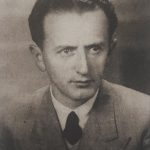 Ymer Dishnica, In 1943-1944 he served as a member of the SNP secretariat. In 1944-1946 member of KANÇ. From 1944 until 1946 he served as Minister of Health, after which he served as Speaker of the People’s Assembly. He was elected a deputy from 1946 until 1950. He was expelled from the Communist Party and began working as a doctor in the Tirana hospital. On January 2, 1950, he was deported with his wife Flora Sata from Tirana to Berat by special order, working as a pathologist in the hospital and in the city ambulance. On January 13, 1956, he was sentenced to six years by the Supreme Court on charges of agitation-propaganda that he had praised bourgeois democracies of the French kind. He was imprisoned on June 27, 1955 until June 12, 1956. After leaving prison he lived and worked in Berat.
Ymer Dishnica, In 1943-1944 he served as a member of the SNP secretariat. In 1944-1946 member of KANÇ. From 1944 until 1946 he served as Minister of Health, after which he served as Speaker of the People’s Assembly. He was elected a deputy from 1946 until 1950. He was expelled from the Communist Party and began working as a doctor in the Tirana hospital. On January 2, 1950, he was deported with his wife Flora Sata from Tirana to Berat by special order, working as a pathologist in the hospital and in the city ambulance. On January 13, 1956, he was sentenced to six years by the Supreme Court on charges of agitation-propaganda that he had praised bourgeois democracies of the French kind. He was imprisoned on June 27, 1955 until June 12, 1956. After leaving prison he lived and worked in Berat.
-
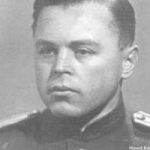 Hamit Keçi, interrupts his studies at the Naples Military Academy in Italy where he was on a course with Mehmet Shehu and returns to Albania to participate in the Anti-Fascist Movement. He was Commander of the Kruja-Ihmad Battalion and of the 23rd Attack Brigade. Until 1949 he served as Director of Operations Directorate at the Ministry of Defense with the rank of colonel and after a conflict with Enver Hoxha, was arrested and sentenced to 15 years in prison. After his release he was interned for a long time.
Hamit Keçi, interrupts his studies at the Naples Military Academy in Italy where he was on a course with Mehmet Shehu and returns to Albania to participate in the Anti-Fascist Movement. He was Commander of the Kruja-Ihmad Battalion and of the 23rd Attack Brigade. Until 1949 he served as Director of Operations Directorate at the Ministry of Defense with the rank of colonel and after a conflict with Enver Hoxha, was arrested and sentenced to 15 years in prison. After his release he was interned for a long time.
-
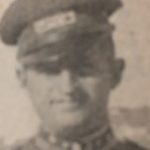 Njazi Islami, a communist of the early hours, was elected to the People’s Assembly and Minister of Communications in 1945. Following the arrest and conviction of two of his wife’s brothers, Hamit and Isuf Keçi, Enver Hoxha calls him into the office and pressures him to divorce his wife and testify about the Keçi brothers’ “hostile” activity. He refuses and after a few days he is found shot dead in his villa in 1950. Official version of suicide. His wife, after the 1990s, has publicly testified in the press that he saw Njazi’s killers shot out of the window.
Njazi Islami, a communist of the early hours, was elected to the People’s Assembly and Minister of Communications in 1945. Following the arrest and conviction of two of his wife’s brothers, Hamit and Isuf Keçi, Enver Hoxha calls him into the office and pressures him to divorce his wife and testify about the Keçi brothers’ “hostile” activity. He refuses and after a few days he is found shot dead in his villa in 1950. Official version of suicide. His wife, after the 1990s, has publicly testified in the press that he saw Njazi’s killers shot out of the window.
-
 Abedin Shehu, Communist of the first hours and partisan with political leadership functions, Commissar of the XXIV-Attacking Brigade, Member of the Kukes District in the People’s Assembly since the first election of 1945, member of the Central Committee of the SPL , until 1950, when he was charged with hostile activity and expelled from all state and party functions. He suffered many years in prison and internment.
Abedin Shehu, Communist of the first hours and partisan with political leadership functions, Commissar of the XXIV-Attacking Brigade, Member of the Kukes District in the People’s Assembly since the first election of 1945, member of the Central Committee of the SPL , until 1950, when he was charged with hostile activity and expelled from all state and party functions. He suffered many years in prison and internment.
-
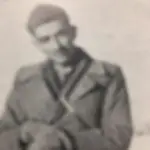 Shyqyri Këllezi, Communist, guerrilla and personal companion of Enver Hoxha during the War, turning his home into the main base of the Communist leadership, Director of the Albanian Railways and a member of the Central Committee of the ASP in the year. 1950 is excluded from the party ranks. Until this time denigrated. He was arrested in 1980 on charges of being a member of a hostile group of other senior officials and sentenced to 10 years in prison.
Shyqyri Këllezi, Communist, guerrilla and personal companion of Enver Hoxha during the War, turning his home into the main base of the Communist leadership, Director of the Albanian Railways and a member of the Central Committee of the ASP in the year. 1950 is excluded from the party ranks. Until this time denigrated. He was arrested in 1980 on charges of being a member of a hostile group of other senior officials and sentenced to 10 years in prison.
-
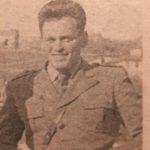 Isuf Keçi, Communist of the First Hours in the Circuit of Tirana, Political Commissar of the VI Attack Division. After the war he was appointed chairman of the Executive Committee of Tirana in 1950-51. In 1951, following the arrest of his brother Hamit, he was sentenced to 10 years in prison and long internment.
Isuf Keçi, Communist of the First Hours in the Circuit of Tirana, Political Commissar of the VI Attack Division. After the war he was appointed chairman of the Executive Committee of Tirana in 1950-51. In 1951, following the arrest of his brother Hamit, he was sentenced to 10 years in prison and long internment.
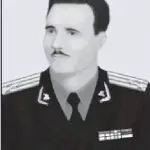 Sali Ormeni, first-time partisan with leadership functions in the Vlora and Kurvelesh area, Chief of Staff of the Division of People’s Defense. Member of the People’s Assembly, Deputy Minister of the Interior and Director General of the Police. In 1951, at a meeting of the Interior Ministry collegium, he opposes Mehmet Shehu, accusing him of bombing the Soviet embassy, a game of security. He is forced into psychiatry and after a few days he is found dead in the woods of Elbasan with a bullet to the head. Official version; suicide. The next day, at the meeting of the Political Bureau, Enver Hoxha declared him an enemy and a traitor who had wanted to flee.
Sali Ormeni, first-time partisan with leadership functions in the Vlora and Kurvelesh area, Chief of Staff of the Division of People’s Defense. Member of the People’s Assembly, Deputy Minister of the Interior and Director General of the Police. In 1951, at a meeting of the Interior Ministry collegium, he opposes Mehmet Shehu, accusing him of bombing the Soviet embassy, a game of security. He is forced into psychiatry and after a few days he is found dead in the woods of Elbasan with a bullet to the head. Official version; suicide. The next day, at the meeting of the Political Bureau, Enver Hoxha declared him an enemy and a traitor who had wanted to flee.
-
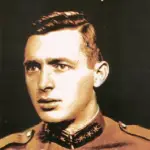 Beqir Ndou, Communist and partisan with leadership functions in the Tropoja area, participating in the Bujan Conference, Colonel, Deputy Minister of Interior and Director of State Security. He was arrested in 1950 on charges of hostile activity and a close associate of Colonel Sali Ormen. Sentenced to 4 years in prison, and upon release, he is deported to Vlora. He was subsequently returned to Durres, where he was monitored by the Security Service and re-arrested in 1980 and sentenced to 10 years. It only lasts two years and is then released.
Beqir Ndou, Communist and partisan with leadership functions in the Tropoja area, participating in the Bujan Conference, Colonel, Deputy Minister of Interior and Director of State Security. He was arrested in 1950 on charges of hostile activity and a close associate of Colonel Sali Ormen. Sentenced to 4 years in prison, and upon release, he is deported to Vlora. He was subsequently returned to Durres, where he was monitored by the Security Service and re-arrested in 1980 and sentenced to 10 years. It only lasts two years and is then released.
-
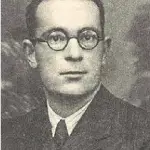 Zef Mala, a graduate of Austria and Italy, Chairman of the Communist Group of Shkodra, is imprisoned by King Zog and interned by the Italians on the island of Ventotene. In 1946, after returning to Albania, while working in the national library, he was suddenly arrested and sentenced to 10 years in prison. The motive of the sentence: “On political attitudes against cooperation with the Yugoslav Communist Party”. Sentenced to two years in prison, released on January 19, 1949, through amnesty for changing attitudes and cooperation with Yugoslavia, as a victim of Koci Xoxes. In 1950 he prepared a history dispatch for the Pedagogical Institute “On Albania 1912-1924, which would later be confiscated and lost. In 1955, he was arrested and sentenced to five years in prison; the motivation “Suspected of linking leftist exponents to the west”. From 1961 to 1964, he interned in Zvernec, Vlora, where he found and formed a friendship with Kasem Trebeshina. Here he would write a philosophical treatise of about 140 pages, which would also disappear. After his release he will be interned again by Enver Hoxha in 1977 in Labovo, Gjirokastra. At July 15, 1978, he writes an Emblematic Memorandum addressed to Prime Minister Mehmet Shehu. The same year he refused to participate in the polls and was therefore sentenced to 10 years in prison in Ballsh, where he was completely blinded. On December 26, 1979, she passed away in Tirana.
Zef Mala, a graduate of Austria and Italy, Chairman of the Communist Group of Shkodra, is imprisoned by King Zog and interned by the Italians on the island of Ventotene. In 1946, after returning to Albania, while working in the national library, he was suddenly arrested and sentenced to 10 years in prison. The motive of the sentence: “On political attitudes against cooperation with the Yugoslav Communist Party”. Sentenced to two years in prison, released on January 19, 1949, through amnesty for changing attitudes and cooperation with Yugoslavia, as a victim of Koci Xoxes. In 1950 he prepared a history dispatch for the Pedagogical Institute “On Albania 1912-1924, which would later be confiscated and lost. In 1955, he was arrested and sentenced to five years in prison; the motivation “Suspected of linking leftist exponents to the west”. From 1961 to 1964, he interned in Zvernec, Vlora, where he found and formed a friendship with Kasem Trebeshina. Here he would write a philosophical treatise of about 140 pages, which would also disappear. After his release he will be interned again by Enver Hoxha in 1977 in Labovo, Gjirokastra. At July 15, 1978, he writes an Emblematic Memorandum addressed to Prime Minister Mehmet Shehu. The same year he refused to participate in the polls and was therefore sentenced to 10 years in prison in Ballsh, where he was completely blinded. On December 26, 1979, she passed away in Tirana.
-
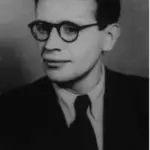 Mark Ndoja, Political Commissar of Shkodra District, Member of Shkodra in the People’s Assembly in the 1945 elections, well-known writer, Secretary of the Albanian Writers’ Association. Then Director of Gymnasium Qemal Stafa. In 1953, his demolition begins after he is fired, arrested and sentenced to 6 years in prison for agitation and propaganda. After his release, he was interned in Zvernec, Vlora, where he became seriously ill from living there. He dies in Tirana in 1972.
Mark Ndoja, Political Commissar of Shkodra District, Member of Shkodra in the People’s Assembly in the 1945 elections, well-known writer, Secretary of the Albanian Writers’ Association. Then Director of Gymnasium Qemal Stafa. In 1953, his demolition begins after he is fired, arrested and sentenced to 6 years in prison for agitation and propaganda. After his release, he was interned in Zvernec, Vlora, where he became seriously ill from living there. He dies in Tirana in 1972.
-
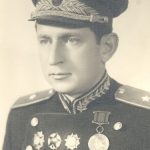 Tuk Jakova, member of the Communist Group of Shkodra, attending the founding meeting of the SNP, political commissar of the First Partisan Brigade with Mehmet Shehu. Also commander of the First Division, Lieutenant General, “Hero of the People”, MP in the People’s Assembly in the first elections. Member of the Political Bureau and Secretary of the CPA Central Committee, Deputy Prime Minister and President of the Trade Unions of Albania. In 1955 he is struck by Enver Hoxha on the pretext of mitigating the war against the Catholic Clergy and dies in suspicious circumstances (thought to be poisoned) in 1959 while serving a sentence at the Tirana Prison Hospital.
Tuk Jakova, member of the Communist Group of Shkodra, attending the founding meeting of the SNP, political commissar of the First Partisan Brigade with Mehmet Shehu. Also commander of the First Division, Lieutenant General, “Hero of the People”, MP in the People’s Assembly in the first elections. Member of the Political Bureau and Secretary of the CPA Central Committee, Deputy Prime Minister and President of the Trade Unions of Albania. In 1955 he is struck by Enver Hoxha on the pretext of mitigating the war against the Catholic Clergy and dies in suspicious circumstances (thought to be poisoned) in 1959 while serving a sentence at the Tirana Prison Hospital.
-
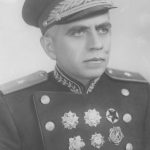 Bedri Spahiu, a communist who in the period of the Zog Monarchy where he served as a military secretary of the Gjirokastra District, refuses to attend the founding meeting of the SNP because of conflicts with Enver Hoxha. In 1945, MP in the People’s Assembly, Attorney General with the rank of Colonel General, “Hero of the People”. Secretary of the CPA Central Committee and Minister of Education. He was arrested in 1955 after opposing Enver Hoxha at a plenary meeting and serving prison time in Burrel and internment in Selenica until 1991.
Bedri Spahiu, a communist who in the period of the Zog Monarchy where he served as a military secretary of the Gjirokastra District, refuses to attend the founding meeting of the SNP because of conflicts with Enver Hoxha. In 1945, MP in the People’s Assembly, Attorney General with the rank of Colonel General, “Hero of the People”. Secretary of the CPA Central Committee and Minister of Education. He was arrested in 1955 after opposing Enver Hoxha at a plenary meeting and serving prison time in Burrel and internment in Selenica until 1991.
-
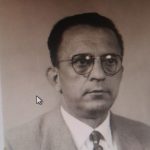 Shemsi Totozani, Communist and Partisan with leadership functions in the Gjirokastra area. Albania’s ambassador to France and Bulgaria until 1955, when his uncle Bedri Spahiu was struck and he was dismissed from all party and state functions. He served 10 years in prison in Burrel, and was subsequently exiled to Belsh, Elbasan. He died in 1991 after being released from exile.
Shemsi Totozani, Communist and Partisan with leadership functions in the Gjirokastra area. Albania’s ambassador to France and Bulgaria until 1955, when his uncle Bedri Spahiu was struck and he was dismissed from all party and state functions. He served 10 years in prison in Burrel, and was subsequently exiled to Belsh, Elbasan. He died in 1991 after being released from exile.
-
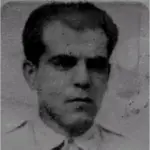 Hulusi Spahiu, officer of the Zog Monarchy, fighter of internationalist brigades in Spain with Mehmet Shehu, Communist and part-time commander with leadership functions, Commander of the 3rd Attack Brigade, Major General. Member of the National Assembly, and Commander of the Albanian Artillery. In 1956, he is struck at the Tirana Conference and, after being mobilized by the army, ends up sentenced to eight years in prison. He was later exiled to the area of Lushnja where he died in misery in 1973.
Hulusi Spahiu, officer of the Zog Monarchy, fighter of internationalist brigades in Spain with Mehmet Shehu, Communist and part-time commander with leadership functions, Commander of the 3rd Attack Brigade, Major General. Member of the National Assembly, and Commander of the Albanian Artillery. In 1956, he is struck at the Tirana Conference and, after being mobilized by the army, ends up sentenced to eight years in prison. He was later exiled to the area of Lushnja where he died in misery in 1973.
-
 Pajo Islamaj, a communist and partisan in the province of Vlora, after the war, performed some state duties as deputy minister of the Mining Industry. In 1956, at the Tirana Conference, he criticized the Bloc’s privileges and declared himself an anti-partisan. He refused to commit self-criticism and refute what he had said at the Conference, and as a result, was arrested and tortured in prison and deportation until 1991.
Pajo Islamaj, a communist and partisan in the province of Vlora, after the war, performed some state duties as deputy minister of the Mining Industry. In 1956, at the Tirana Conference, he criticized the Bloc’s privileges and declared himself an anti-partisan. He refused to commit self-criticism and refute what he had said at the Conference, and as a result, was arrested and tortured in prison and deportation until 1991.
-
 Nesti Zoto, partisan in the UNSHA, and subsequently effective with a leadership position in the Directorate of Public Protection. Upon his dismissal, he would serve as a Deputy Foreign Minister. In 1952-1956, Zoto was appointed General Manager of Kinostudio. He would also be one of the most prominent members of the Tirana Conference in 1956, where Zoto himself would attack the Blokes’ privileges, and Enver Hoxha’s Stalinist character. After this conference, he was fired from all managerial positions, and exiled to family, where he died in miserable conditions.
Nesti Zoto, partisan in the UNSHA, and subsequently effective with a leadership position in the Directorate of Public Protection. Upon his dismissal, he would serve as a Deputy Foreign Minister. In 1952-1956, Zoto was appointed General Manager of Kinostudio. He would also be one of the most prominent members of the Tirana Conference in 1956, where Zoto himself would attack the Blokes’ privileges, and Enver Hoxha’s Stalinist character. After this conference, he was fired from all managerial positions, and exiled to family, where he died in miserable conditions.
-
 Iljaz Ahmeti, Senior Military. Born January 10, 1915, in the village of Tatzat, Delvina. He completed his economics studies in Kozensi, Italy. During the war he was one of the leading military leaders for the district of Gjirokastra. In 1942 he was elected a member of the Albanian Communist Party. Following debates with Enver Hoxha at the Tirana Conference (April 14-19, 1956), he was expelled from the Party as an enemy. He was arrested on June 15, 1973. Two months later, on August 17 of the same year, the Lushnja District Court sentenced him to 10 years in prison and confiscation of movable property for “agitation and propaganda against popular power, spread some counter-revolutionary ideas to specific people. ” After his release, he was interned in Lushnja. Died May 21, 1996.
Iljaz Ahmeti, Senior Military. Born January 10, 1915, in the village of Tatzat, Delvina. He completed his economics studies in Kozensi, Italy. During the war he was one of the leading military leaders for the district of Gjirokastra. In 1942 he was elected a member of the Albanian Communist Party. Following debates with Enver Hoxha at the Tirana Conference (April 14-19, 1956), he was expelled from the Party as an enemy. He was arrested on June 15, 1973. Two months later, on August 17 of the same year, the Lushnja District Court sentenced him to 10 years in prison and confiscation of movable property for “agitation and propaganda against popular power, spread some counter-revolutionary ideas to specific people. ” After his release, he was interned in Lushnja. Died May 21, 1996.
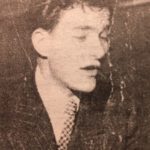 Muhamer Spahiu, first-time communist and partisan with political leadership functions, aide to Nako Spiro in the State Planning Commission and a senior official in the Communist Youth. Secretary General of the Council of Ministers, arrested in the mid-1950s, and until 1991 suffered prison and deportation. Ramiz Alia, his bank friend in high school, never really cared about him.
Muhamer Spahiu, first-time communist and partisan with political leadership functions, aide to Nako Spiro in the State Planning Commission and a senior official in the Communist Youth. Secretary General of the Council of Ministers, arrested in the mid-1950s, and until 1991 suffered prison and deportation. Ramiz Alia, his bank friend in high school, never really cared about him.
 Dali Ndreu, Communist since the Zog Monarchy where he served as a military, Deputy Chief of the General Staff of the National Liberation Army, Commander of the First Army Corps with Major General and MP in the People’s Assembly in the elections First. In 1947, after the crackdown on his tribe, the famed Debra Grove, he was demobilized and after a short stint as Minister of Construction. In 1956, he was arrested, and after a speedy trial, executed with his wife Liri Gega and Peto Bullati in Linz, Tirana.
Dali Ndreu, Communist since the Zog Monarchy where he served as a military, Deputy Chief of the General Staff of the National Liberation Army, Commander of the First Army Corps with Major General and MP in the People’s Assembly in the elections First. In 1947, after the crackdown on his tribe, the famed Debra Grove, he was demobilized and after a short stint as Minister of Construction. In 1956, he was arrested, and after a speedy trial, executed with his wife Liri Gega and Peto Bullati in Linz, Tirana.
-
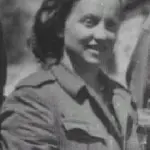 Liri Gega, Communist of the Hours, a member of the Political Bureau of the SNP, Deputy Commissar of the Brigade and First Attacker Division. Gega has also held important positions in the Albanian Women’s Organization. In 1956 she was arrested along with her husband, Major General Dali Ndreu, on charges of wanting to flee Albania. Sentenced to death and executed by firing at the end of the same year. A few months later, Khrushchev asked Enver Hoxha for an account that he had shot Liri Gega when she was pregnant.
Liri Gega, Communist of the Hours, a member of the Political Bureau of the SNP, Deputy Commissar of the Brigade and First Attacker Division. Gega has also held important positions in the Albanian Women’s Organization. In 1956 she was arrested along with her husband, Major General Dali Ndreu, on charges of wanting to flee Albania. Sentenced to death and executed by firing at the end of the same year. A few months later, Khrushchev asked Enver Hoxha for an account that he had shot Liri Gega when she was pregnant.
-
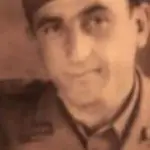 Petro Bullati, longtime exponent of the Anti-Fascist National Liberation War, for the district of Shkodra. Father-in-law of Vasil Shanto. After his liberation, he held senior positions in the People’s Protection Division, being appointed commissar of one of the three divisions. Also in the 1950s he is promoted to Colonel of the Ministry of Internal Affairs, where he heads the border sector and then the background. He is arrested along with Dali Ndreu and Liri Gega, and after a closed-door trial, is accused of being a Yugoslav agent and sentenced to death. He was executed in late 1956 along with Ndreu and Gega in Linza. The family is deported to the area of Fier.
Petro Bullati, longtime exponent of the Anti-Fascist National Liberation War, for the district of Shkodra. Father-in-law of Vasil Shanto. After his liberation, he held senior positions in the People’s Protection Division, being appointed commissar of one of the three divisions. Also in the 1950s he is promoted to Colonel of the Ministry of Internal Affairs, where he heads the border sector and then the background. He is arrested along with Dali Ndreu and Liri Gega, and after a closed-door trial, is accused of being a Yugoslav agent and sentenced to death. He was executed in late 1956 along with Ndreu and Gega in Linza. The family is deported to the area of Fier.
-
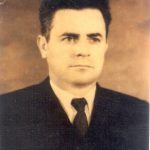 Panajot Plaku, former partisan and long-time exporter of the UNLA in the Korça and Devoll area. After the war, he performed leadership functions at the Ministry of Internal Affairs, specifically at the Directorate of Public Protection. In the early 1950s, Elder Panajot served as Minister without Portfolio and a member of the Political Bureau in Enver Hoxha’s cabinet. From 1954-1957 he was Deputy Minister of Interior for the Border Sector. During a routine inspection in May 1957, he escaped to Yugoslavia. Panajot Elder, lived there until 1966 turning into one of the fiercest exiles in official Tirana. Died in a Belgrade hotel in 1966. Official version, cardiac attack. It is noteworthy that all of his brothers were eliminated, Mikhail Elder (Director of Sucth Farm), suspected of a possible poisoning in 1956, Koch Elder (Chief Oil Engineer) jailed with the so-called Hostile Oil Group in 1975, and shot the following year. Panajiot’s grandson, Jorgo, dies in a suspicious accident on the Drin River in 1980.Memorie.al
Panajot Plaku, former partisan and long-time exporter of the UNLA in the Korça and Devoll area. After the war, he performed leadership functions at the Ministry of Internal Affairs, specifically at the Directorate of Public Protection. In the early 1950s, Elder Panajot served as Minister without Portfolio and a member of the Political Bureau in Enver Hoxha’s cabinet. From 1954-1957 he was Deputy Minister of Interior for the Border Sector. During a routine inspection in May 1957, he escaped to Yugoslavia. Panajot Elder, lived there until 1966 turning into one of the fiercest exiles in official Tirana. Died in a Belgrade hotel in 1966. Official version, cardiac attack. It is noteworthy that all of his brothers were eliminated, Mikhail Elder (Director of Sucth Farm), suspected of a possible poisoning in 1956, Koch Elder (Chief Oil Engineer) jailed with the so-called Hostile Oil Group in 1975, and shot the following year. Panajiot’s grandson, Jorgo, dies in a suspicious accident on the Drin River in 1980.Memorie.al
Coming tomorrow




